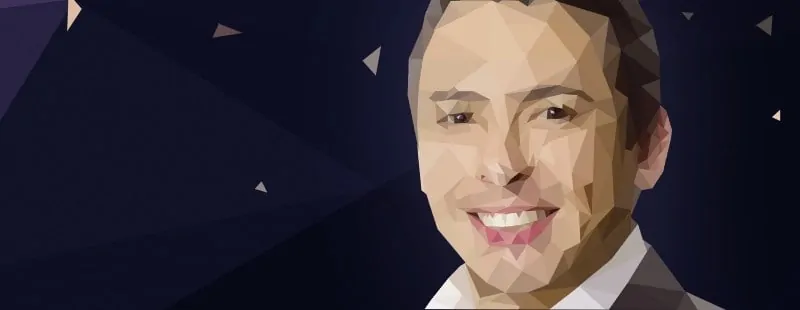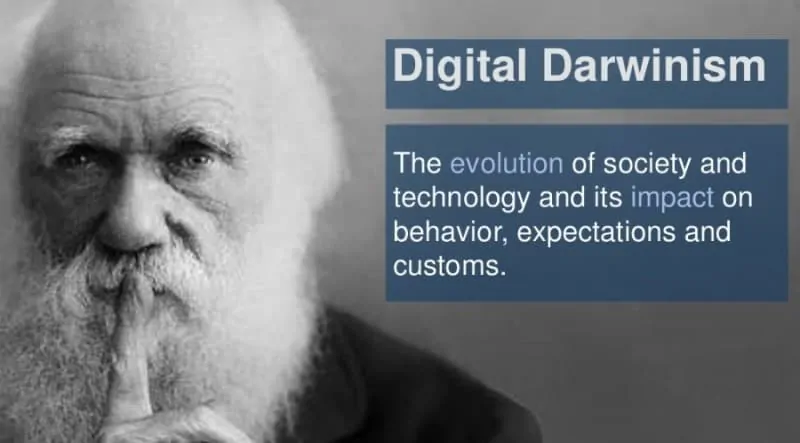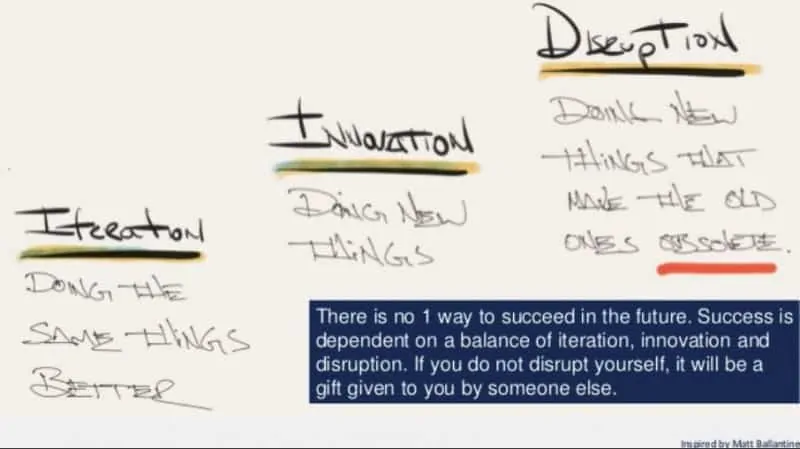Interview with Brian Solis: What It Takes to Create Exceptional Customer Experience

A little less than a month ago, in the middle of the night, hollers of excitement have been heard, as far as the Montenegrin coast I believe. It was the moment when we heard that Brian Solis accepted to be the keynote speaker at Spark.me, the biggest tech and marketing conference in SEE, organized by yours truly as part of .ME’s CSR efforts.
Brian is someone whose work we have been following closely over the years, who has a specialty of writing blog posts one can meditate over for days, and who has been one of the first marketing thinkers to start writing about the implications of the technological revolution on business and society. He looks at technological trends from lenses of sociology, psychology, and business, something that has earned him the title of a digital analyst, anthropologist, and futurist.
Besides having the privilege of spending two days with someone we admired greatly, we jumped at the opportunity to interview him for our blog and share at leat a slice of his wisdom with you. Here is the audio recording of our conversation with the Mister X himself, and the transcript of it below:
Q: What makes an exceptional customer experience and what does it take to create one?
An exceptional customer experience is starting with understanding what a customer experience is. Too many people that work in this field look at customer experience from their point of view; so it means that these are the technologies we need, these are the systems and processes we need, these are the groups that handle the experiences that people have, but there is no one person who necessarily owns customer experience. The customer owns customer experience.
What I challenge the businesses to think about is: What if you had to measure the customer experience from the customer’s perspective? For example, what I feel as your customer, what I am buying, what I am trying to consider, what I should buy, what I do purchase, how I use your product, when do I have a problem with your product and how I talk about your product. That is the customer experience.
This is why most businesses miss the true opportunity to be the disruptor and why they become disrupted – because they are not understanding what matters to people.
Q: In your book “The Future of Business”, you are talking about the role technology plays in engaging with the consumers. Do you think having a top-notch technology is the most important thing?
Technology is one of the things that gets in the way of the people when they are trying to be more relatable to people because we use it as a crutch. By that, I mean that we use technology because we are lazy. We try to be scalable, we try to be more relevant, because we are using the latest technology but at the same time what we use technology for is essentially just being put on to, or bolted on to, or slapped onto, old stuff, old thinking and old ways of doing business. At the end of the day, the customers are changing – they are becoming more empowered.
I don’t care where you live in the world, I don’t care how you think about business, I don’t care how you think about customers, but today there is a real revolution going on and I call it the Digital Darwinism and unless we don’t start thinking about the ways technology solves problems or creates opportunities, we are going to be a part of the problem. Not part of the solution.

Q: I stumbled upon a quote of yours that says: If you don’t disrupt yourself, it will be a gift given to you by someone else. In this turbulent times how dangerous it is for someone else to shape your vision?
I believe that if you do not disrupt yourself, you are not allowed to talk about disruption. It is a truth that I believe that it’s something you have to experience. Too many companies are essentially trying to evolve through iteration. They are trying to evolve by doing the same things better. But innovation, and this is the time when we need innovation, is when you do new things that create new value. This is so important because new value means that there is something to be appreciated outside of what you appreciated.

That means that the society is changing, the core values are changing, that aspirations are changing, how people even define happiness is changing, and you are trying to sell to who you think the customer is but they are changing. So the people that you sell to, that still buy you, that still keep you in business, that still keep you profitable, are starting to get older, starting to get more grumpier, the grumpy old men and the grumpy old women, they are going to start dying and I hate to say that but it’s true.
That’s who you are selling to and you have to start thinking about a new generation, of not just customers, but human beings. I mean, come on, it’s time to start to challenge your own role, to reinvent your role, so you can be successful for new generation of business.
Q: Often times your blog posts and books describe something we feel is going on but did not realize the full extent or the reasoning behind. You give a very logical description of what we see but were not able to recognize for what it was, until you wrote about it. How do you manage to do that every time? Is that the balance between sociology, psychology, and business that you spoke about?
What you just said and what you just asked is actually a very big compliment.
Einstein once said that if you don’t really know your subject and are able to communicate it, you really don’t know your subject. When you are able to make something relatable, when you are able to put words into peoples’ hearts and mouths and minds like “he said what I felt”, it is a great deal of work, which means you have to be incredibly empathetic. This is where businesses fail, it’s that I might say something and someone might say like “oh, of course, that’s logical” and some people actually dismiss that and say “that is so common sense”, but they don’t think it but when they read it, it’s what you do with what I write that determines your fate.
This is what is very interesting: some people dismiss it and say, “oh, that is commonsensical”, but they never thought about it before, never articulated it before. But then there are people that say, that is exactly what I have been trying to put words to and then they start to change the world. And I only know this because I am incredibly empathetic. I study peoples’ challenges, their opportunities, their aspirations, where they find successes, and I find and the patterns in how they do this, when they do this, where they can’t do this, and when I write about it, yes, that is exactly what I am dealing with, but it’s not scalable and this is my challenge. When somebody listens to what I have to say, and they really get it, it’s because they are ready to bring about change or they are ready for a change. Of all the people in the world, only a few people are ready for change, but this is how we scale. If I can inspire people to bring about change, then we can all grow this.
Still want more? We understand completely, so here is the video of Brian’s keynote speech at Spark.me 2016 🙂
